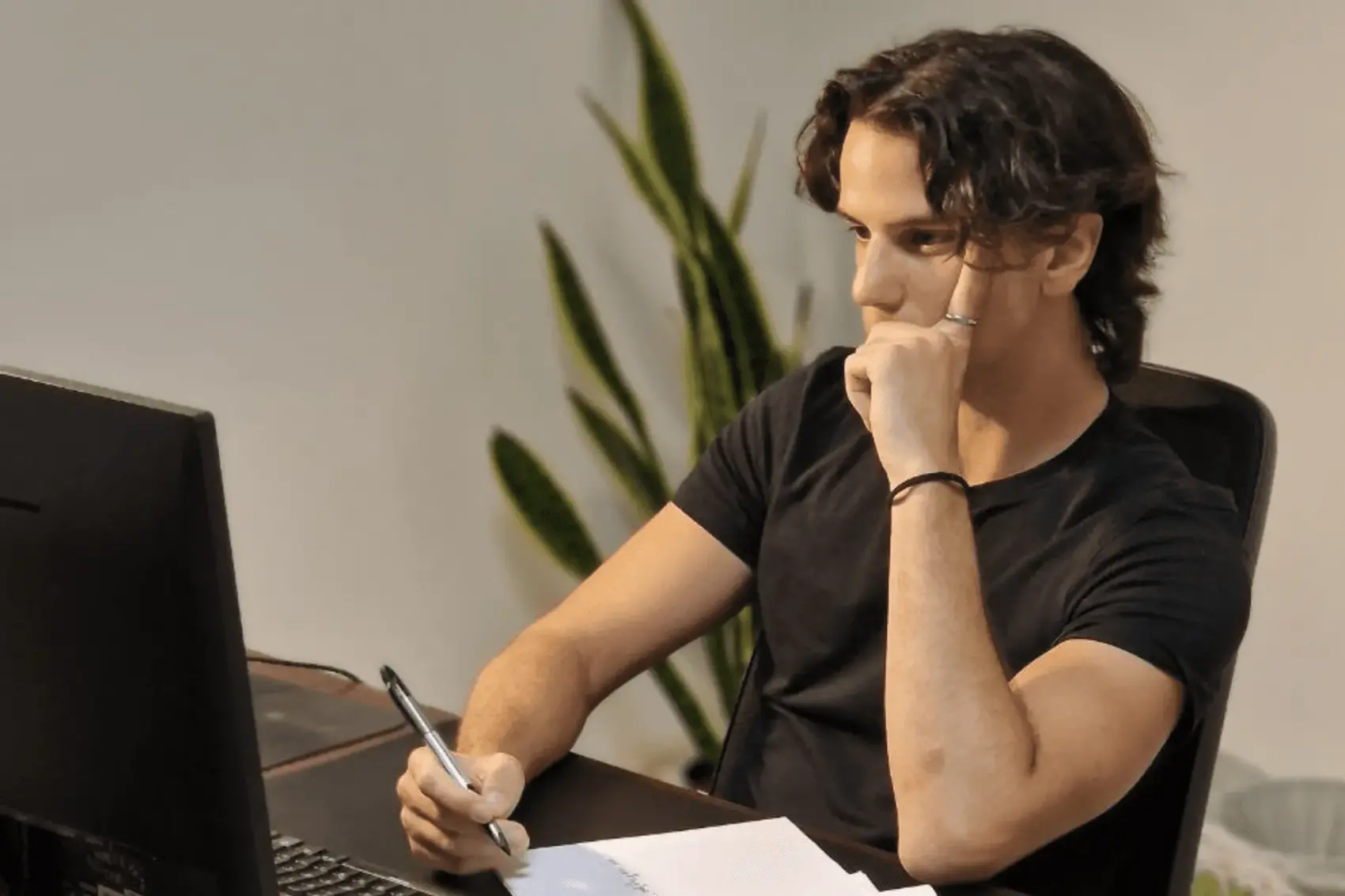An interview with Lorenzo Guetta , Alumnus of the Bachelor’s Degree in Digital Management, now founder of Trybe.

At H-FARM College I have had many important and meaningful experiences and finding one among them is not an easy task. I had the opportunity to meet like-minded people from day one, with whom I could share dreams and ambitions and grow together. Incredible friendships were then born from those shares. Being off-site and staying close to the campus gave me the opportunity to meet great entrepreneurs, founders and teachers, stimulating the best in me. A fundamental lesson I have learned is the value of “failure”: every mistake brings with it a lesson, and I can confirm how crucial this lesson was in my growth.
I must also mention and thank Casa XI, my residence at that time. Anyone who experienced H-FARM College in those years knows how fundamental it was for creating bonds and emotions. But that’s another story.
It is not so much a particular memory that I carry with me, but more an emotion. I remember that time near Christmas, when we had to prepare for the upcoming session and we were all busy studying late in the new classrooms. The campus was semi-empty due to winter break, and there was an almost magical sense of peace and harmony. We had complete freedom to enjoy the campus as if it were ours alone: from playing a game of padel to riding a scooter or simply enjoying a coffee in peace immersed in the greenery of the campus…

Trybe was born from a very simple observation: often, we young people complain about the problems we see around us but we don’t do anything concrete to solve them. Boyan Slat (Founder of Ocean Cleanup) comes to mind, who instead of just posting on social media, sought a real solution to ocean pollution.
The inspiration for Trybe came during my brother’s trip to Rome with his girlfriend. She, being a foreigner, was shocked by the degradation she saw: polluted Tevere, graffiti on historical monuments, rubbish etc…And so a question arose: if the institutions do not solve these problems, how can we encourage people to do so themselves?
After discussing it, we concretely developed the Trybe idea, which was then refined during my experience at the Founder Institute in Zurich.
The basic idea is very simple, it’s like a public tender in which the funds are raised through crowdfunding. People report a problem and, if they want to, decide to donate something towards its resolution. If this problem is “felt”, more people will decide to contribute to the donation until the law of supply and demand ensures that the accumulated fund attracts the attention of someone who is incentivized to solve the problem, obtaining the amount collected as a reward. All this clearly accompanied by feedback systems, profiling, chat, etc… I don’t want to go into too much detail.
The idea applies to many industries. On the one hand, we want to help create a sense of community, ensuring that people are personally involved in solving problems, even small ones, relating to the places where they live. From cleaning the park outside the house to helping the elderly neighbor paint the house.
On the other hand, we can also think big. We have noticed that many young people no longer trust charities, often because they lack concreteness and transparency in how they use the funds raised. Trybe can help solve this problem, offering a platform to virtuous associations to solve specific problems, all over the world and in all areas, in the most effective and economical way possible.
We also want to collaborate with local authorities. At the beginning, Trybe will help you understand which problems are most felt, where to intervene and allocate resources. In the future, thanks to the integration of AI technologies, we will also be able to identify and anticipate areas that require urgent or frequent interventions, thus ensuring a more effective use of resources, or calculate the probability that a certain problem will be solved in a certain period of time.

The main challenge for Trybe will be to build a strong and engaged community from the beginning. While our model has vast potential, there is a risk that it will become too generic. After extensive research and user interviews, we understood the importance of defining an initial niche and building a solid base of passionate supporters. We have already developed several prototypes and are recreating our website, which will feature a key Trybe feature for the first time. We are also about to start a pre-acceleration program in H-HARM. Great things await us and we can’t wait to embark on this new chapter together.

In addition to being passionate about Trybe, I have always had in my heart the desire to help others realize their dreams, especially friends and family who have brilliant ideas but don’t know where to start. The world of startups is vast and fascinating, and every day I strive to acquire as many skills and knowledge as possible. My goal? Accumulate experience and, in the future, put it at the service of other aspiring founders, guiding them on the difficult but rewarding path of creating a startup so that they too can see their dreams take shape and become reality.



 Back
Back